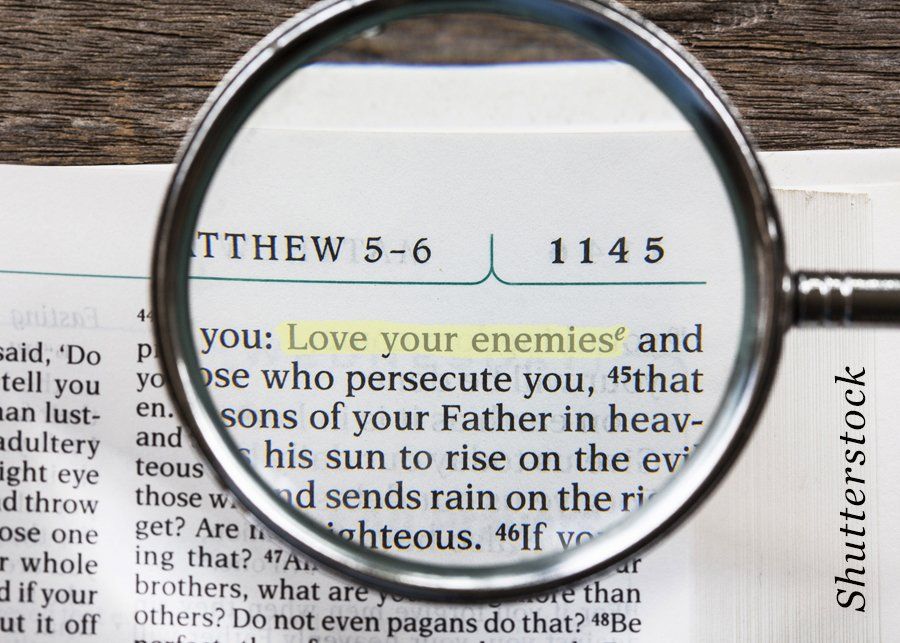Islam is rarely critiqued by journalists because it can be dangerous to do so. This has been less true since 11 September 2001 because people are interested in Islam and are searching for answers.
However, it is still risky to write anything that may impugn Islam and especially the founder, Mohammed. This is one reason why I call Islam a cult. Muslims often treat opponents with something less than kindness as they seek to defend the honour of ‘Allah’.

What is a ‘cult’?
My working definition of a cult is non-theological. Traditionally, Christians apply the term to Bible-based groups that have departed significantly from the mainstream and historical creeds.
Such cults frequently deny the full deity and humanity of Jesus; his atoning work on the cross; his bodily resurrection; and his return at the end of the age to judge the living and the dead.
However, I will employ a secular definition of a cult as ‘any group that uses psychological or sociological techniques to recruit, motivate, and retain adherents’.
Cults are not necessarily religious; they may be political, commercial, psychological, or sociological in nature. They may be large or small, named or unnamed, known or unknown.
Cults may have a leader or be without a leader. The common feature is the use of control mechanisms that violate the individuality of participants.
Is Islam cultic?
Many would deny that Islam has the characteristics of a cult. But why is Islam not a cult when in many Muslim-dominated countries it is a capital offence to hand Muslims a Bible or explain Christianity (or any other religion) to them?

Saudi Arabia, the guardian of Islam’s most holy shrines at Mecca and Medina, is a highly restricted society where Christians are not allowed any public expression of their faith.
Why is Islam not a cult when it is virtually impossible for a Muslim to leave the religion, even if he merely wishes to become an atheist or agnostic?
Why is Islam not a cult when Muslim warriors force their religion on people? The history of Islam is full of that kind of proselytisation.
Yes, I know the Roman Catholic Church has in the past forced ‘pagans’ to adopt Catholicism. However that body has acknowledged that it was wrong-headed and anti-Christian to do so.
As a Baptist, I can say that in 500 years of our history, if we have been true to our principles, we have not engaged in such tactics and neither have any of the traditional Evangelical, Protestant denominations.
Satanic Verses
A vivid illustration of the cultic nature of Islam is the case of the novelist Salman Rushdie. Rushdie had a death contract issued against him for writing his book The Satanic Verses. Yet novelists, journalists, commentators, filmmakers, and television producers routinely blaspheme the God of Christianity without reprisal.
Of course, the fatwah against Salman Rushdie is blamed on ‘fundamentalists’ and ‘extremists’, while most Muslims who live in Western countries are peace-loving citizens.

But the loyalty inculcated by Islam runs deeper than allegiance to any nation. Muslims will change ‘political’ affiliations if needed, but their commitment to the defence of Islam easily becomes fanatical.
A contrast
How insecure and weak must Islam be when Muslims threaten those who oppose it with violence rather than use reasoned defence. Such paranoid behaviour renders Islam resistant to self-evaluation and exposes its internal deficiencies.
Biblical Christianity thrives in a free, pluralistic, and democratic society. It neither needs nor benefits from the support of a nation state. By contrast, Islamic control in many countries is totalitarian, dictatorial, and oppressive.
In countries ruled by Sharia (Islamic law), minor infractions may be punished by the loss of a hand, a foot, or life itself. Muslim women have been stoned to death for inadvertently exposing an ankle or forearm in public. The much touted ‘mercy’ of Islam is hard to detect.
Disillusionment with the religion simmers under the surface in Islamic societies. Muslim immigrants to Western countries, if allowed to do so, either moderate or abandon Islam altogether. Others go through the religious motions, but their hearts are not in it.
The cost of defection
Recently there was a ‘rallying to the cause’ as many Muslims believed the ‘war against terrorism’ is between ‘Christian America’ and Islam. But many Muslims would prefer to be free of such influences if they could.
Of course, Muslim clerics in the West realise this and do not hesitate to isolate their constituents from non-Muslim influence. Isolation is a typical cultic mechanism – defections are treated most seriously.
In lands dominated by Islam, the rule is ‘once a Muslim, always a Muslim’. Like the Mafia, Islam is difficult to leave, and any who defect may do so at a great price.
Most cults ostracize defecting people, cutting them off from family, friends, and even employment. Muslims sometimes assassinate people who leave their religion. How very cultic!
World rule
Cults are dangerous – they control and manipulate those under their sway. Islamic leaders may issue a declaration (fatwah) or call for a holy war (jihad). Muslims are expected to obey these calls despite their individual feelings. As with the fatwah against Rushdie, Muslems remained under a theoretical obligation to kill him even though restrained from doing so by the law of the land.
If Islam were not so fractured into sects and splinter movements, the non-Muslim world would face a more serious enemy than it does today. Islam sanctions the murder of ‘infidels’ and, of course, I am one and so is anyone who is not a Muslim.
It is no secret that Islam’s goal is world rule. This is not some right-wing conspiracy theory; it is the stated aim of Islam.
On the other hand, while Christians seek to share the Good News of Christ world-wide, they are not intent on forcing people to accept Christianity, much less eliminating those who reject the message.
Spiritual process
Conversion to Christ is a spiritual process, not the recitation of a formula like: ‘There is no god but Allah and Mohammed is his prophet’. Biblical Christianity is about grace, which is God’s gift of faith and forgiveness.

Christianity is grounded both in the sacrifice Jesus offered for sin on the cross, and upon his resurrection which declares those for whom he died ‘justified’. No one becomes a Christian on the basis of their ‘works’ or actions.
Rather, conversion is something God brings about. This is why the New Testament uses the term ‘new birth’ to describe it (see John 3:1-15). Humans cannot control their physical birth, and the new (spiritual) birth is the same. It lies in God’s power to bring about, not man’s. No public or private declaration will ever make a Christian out of anyone.
Revised religion
Islam is classed with those religious groups that have ‘revised’ Christianity. Some of these are: The Church of Latter Day Saints (Mormons), Jehovah’s Witnesses, and the Unification Church (Moonies).
In all these groups, including Islam, Jesus is acknowledged and honoured as a prophet. He may even be worshipped to some degree. Yet many of Jesus’ teachings are declared to be incomplete and outdated. They must therefore be replaced or superseded by the teachings of … (insert name of group or prophet).
The Christianity Mohammed knew in the sixth and seventh centuries in the Arabian Peninsula was far different from New Testament Christianity – it had radically deteriorated.
Observing the deficiencies in Judaism and this degenerate Christianity, Mohammed replaced them with his own concepts. This is understandable. The result, however, is not an improvement; it is simply another failed revisionist effort.

Downgrade
It is patronising, too, for Islam to say it respects Jesus as a prophet while denying or altering what he said about himself and what the New Testament writers said concerning him. I am thinking of such Scriptures as John 1:1-3 and Colossians 1:15-20 among many others.
Of course, the Mormons, Jehovah’s Witnesses, and Moonies do the same. Revisionist cults must downgrade Jesus so that the ‘new, improved prophet’ (or ‘truth’) can be presented as a replacement.
If Jesus is God in the flesh, Emmanuel, as the Christian Scripture proclaims; and if Jesus is the Messiah prophesied by the great Hebrew prophets; and if Jesus is the only Lord and Saviour who will return to judge the living and the dead; then it is impossible to replace him.
Revelation
The Qur’an declares that the Bible, Old and New Testaments, is a revelation from God. But it then proceeds to reject the clear message of the Bible! If the Bible is accurate about Jesus, there is no need for the Qur’an or Mohammed.
So, was Mohammed using flattery, or attempting to patronise Christians, when he seems to honour Jesus? Or did he simply not understand?
Christians reject the belief that Mohammed is the prophet of God. Christians reject the Qur’an as a revelation from God. At least this is an honest position, innocent of any effort to mislead, flatter, confuse, or patronise.


















